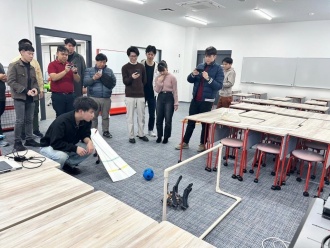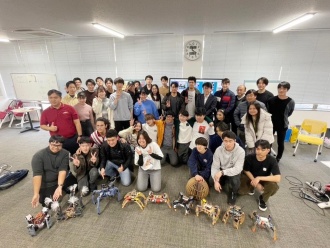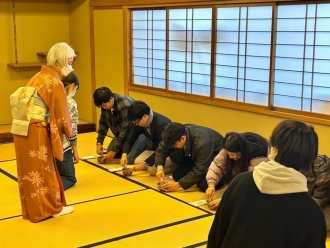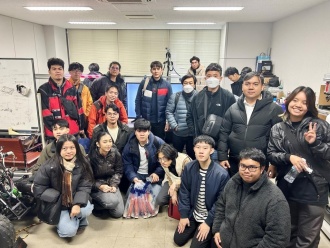Kyutech conducted the "Robotics PBL Collaborative Practice and Curriculum Development through Student Exchange" competition from 21 to 27 January 2024 under the SAKURA Science Exchange Program sponsored by JST. 8 students and 2 faculty members from King Mongkut's University of Technology North Bangkok (KMUTNB, Thailand), 6 students and 1 faculty member from King Mongkut's Institute of Technology Ladkrabang (KMITL, Thailand) participated in the program.
The purpose of this program is to train the third-year students of the Department of Intelligent and Control Systems who are taking PBL classes in the GE course by providing them with the opportunity to interact with excellent students from overseas in cooperation with the partner universities in Asia, in order to develop human resources who can lead the diverse society and the future by acquiring new technological perspectives and visions. 16 third year students from the Department of Intelligent and Control Systems and 5 Teaching Assistants (TA) from Kyutech participated in the project.
This program started online last October, and each team worked together to build a robot. This time, for the competition, members of KMUTNB and KMITL came to Japan to make final adjustments, communicate face-to-face and share each other's knowledge and skills.
On 26 January, each team presented the robot they had developed, and a final presentation and competition took place. The participants had the opportunity to demonstrate the skills and knowledge they had learned while working together, and it was a valuable experience for them to broaden their international perspectives.
During the program, the students visited various laboratories, gaining exposure to different areas of research and gaining new inspiration from hands-on experience. Participants also engaged in Japanese cultural experiences such as the tea ceremony and yukata dressing. These activities not only enabled them to acquire technical skills, but also immersed them in Japanese traditions and culture, enriching their learning and interaction.
Update:2024.02.07









